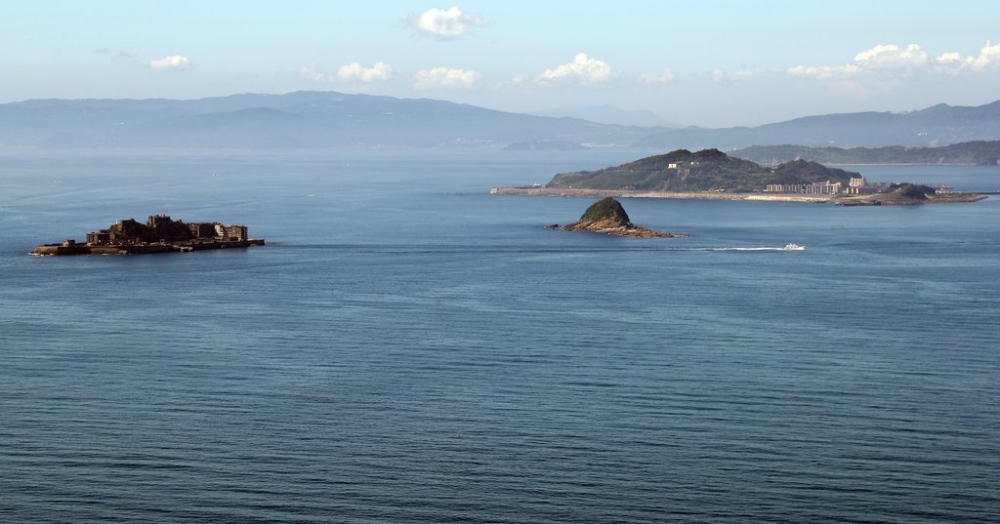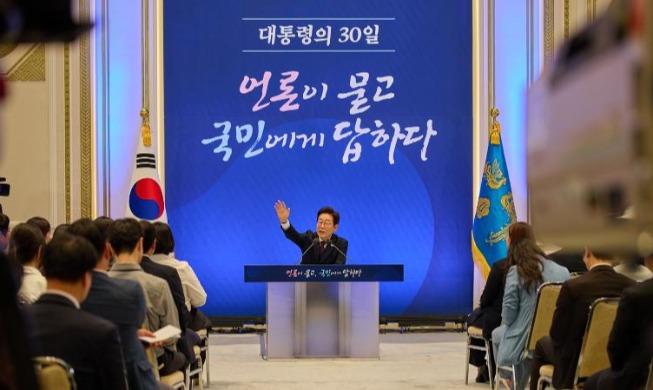
This photo taken on June 30 shows the Japanese islands of Hashima (left) and Takashima (larger island on right), two sites where Koreans were forced to work before and during World War II, as seen from an observatory in Japan's Nagasaki Prefecture. (Yonhap News)
By Kim Hyelin
The Ministry of Foreign Affairs on July 7 expressed regret over the rejection of a UNESCO vote on verification of progress in Japan's pledges made in exchange for registering as a World Heritage Site Hashima (Battleship) Island, where Koreans were forced to work during Japanese colonial rule of the Korean Peninsula in the early 20th century.
Such pledges included having Tokyo discuss and inform to the world its past use of forced labor from Korea on the island.
Korean media including Yonhap News quoted a ministry source as saying, "During the discussion, our government delegation indicated a lack of faithful fulfillment of Japan's pledges and the World Heritage Committee's decisions on modern industrial facilities. We urged the committee to directly look into the implementation issues."
"Despite our efforts, we express regret over the inability to secure the necessary votes to adopt the agenda," the official added.
"During the prior consultation process with UNESCO member countries, we stressed that the inspection of the progress in decisions adopted by the World Heritage Committee is a matter of principle and a legitimate right, to which many countries expressed agreement."
The official said Seoul will formally reiterate its position on the issue at "an appropriate time" during the committee meeting.
The ministry will also keep urging Japan to "faithfully carry out" the committee's relevant decisions and Tokyo's pledges at the bilateral and multilateral levels.
The official said Korea intends to clarify its stance on historical issues while continuing future-oriented cooperation with Japan "based on mutual trust."
Earlier that day, the committee's 47th session in Paris discussed formally adopting as an agenda assessment of the implementation of the committee's decision on Japan's industrial heritage from the Meiji era. The evaluation was initially deemed "tentative agenda."
Japan's amendment on deleting this agenda was adopted in a 7-3 committee vote, with eight countries abstaining and three votes invalid.
kimhyelin211@korea.kr
Most popular
- Grammy-winning producer calls Suga of BTS 'amazing artist'
- Animated 'KPop Demon Hunters' tops Netflix charts in 41 markets
- 'Squid Game' events to pump up K-Content Seoul Travel Week
- Reunited BLACKPINK releases video preview of world tour
- 'Universal love, family' themes fuel success of 'King of Kings': director
